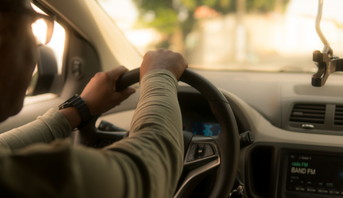
Introduction:
In a recent writ petition under Article 226 of the Constitution of India, Mr. Shubham Agrawal, learned counsel for the petitioner, challenged an order, issued under Section 129(3) of the Uttar Pradesh Goods and Services Tax Act, 2017. The petitioner contested the penalty levied and subsequent appellate order dated January 10, 2022, which dismissed the appeal. The central issue revolved around the non-completion of Part 'B' of the e-Way Bill. The court, after meticulous scrutiny, found that the case presented a mere technical error without any intention to evade taxes.
Factual Background:
The dispute primarily centered around the petitioner's failure to fill up Part 'B' of the e-Way Bill. Notably, the consignment details, including the truck transporting the goods, matched the bill of lading. Additionally, there was no discrepancy between the goods and the invoice. Importantly, the Department failed to establish any intent by the petitioner to evade taxes.
Legal Arguments:
Mr. Shubham Agrawal, representing the petitioner, relied on two pertinent judgments, namely VSL Alloys (India) Pvt. Ltd v. State of U.P. and another and M/s Citykart Retail Private Limited through Authorized Representative v. Commissioner Commercial Tax and Another. These cases emphasized that the non-completion of Part 'B' of the e-Way Bill, without a clear intent to evade taxes, should not warrant the imposition of penalties under Section 129(3) of the Act.
On the other hand, Sri Rishi Kumar, learned Additional Chief Standing Counsel, relied on the appellate authority's order, highlighting the non-completion of Part 'B' of the e-Way Bill.
Court's Analysis:
The court delved into the judgment of M/s Citykart Retail Pvt. Ltd.'s case, emphasizing the absence of any intent to evade taxes merely on the grounds of non-completion of Part 'B' of the e-Way Bill. The court noted that the petitioner's technical error was supported by Circulars issued by the Ministry of Finance, addressing challenges in completing Part 'B' of the e-Way Bill.
Judicial Precedent:
The court cited M/s Citykart Retail Pvt. Ltd.'s case, where it was held that the mere non-filling of Part 'B' of the e-Way Bill, without any intention to evade tax, cannot be a basis for imposing penalties. The court reiterated that the facts in the present case closely mirrored those in the referenced case, with the error being of a technical nature and devoid of any intent to evade tax.
Court's Decision:
Considering the similarities in facts and legal arguments, the court quashed the orders dated November 10, 2020, and January 10, 2022. The writ petition was allowed, and the court directed the respondents to return the security to the petitioner within six weeks. The decision reinforced the principle that a technical lapse in e-Way Bill compliance, without any intention to evade taxes, should not attract penal consequences under Section 129(3) of the Act.
Conclusion:
This judicial decision provides clarity on the interpretation of Section 129(3) of the Uttar Pradesh Goods and Services Tax Act, 2017, emphasizing that penal actions must be linked to intentional evasion of taxes rather than mere technical errors in e-Way Bill compliance. The case serves as a precedent for future disputes involving similar circumstances, contributing to the jurisprudence surrounding GST laws in India.
Topic-Roli Enterprises versus State of U.P. (ALLAHABAD HIGH COURT)
Citation-2024 TAXONATION 57 (ALLAHABAD)
Team Taxonation
Comment: